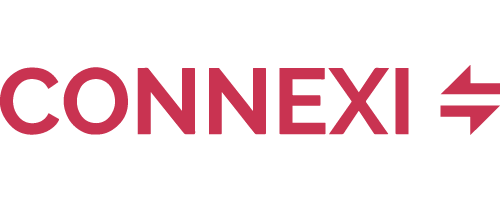Intro
The Covid pandemic has not been easy for rights holders, particularly in the sports industry. The shutdown of sports and fan attendance posed many questions about how sports teams will cope. We undertook some research to delve deeper into the sport specific coping mechanisms. Giving you an inside look into how racecourses are reacting to the challenges that are coming about as a result of the Covid pandemic. Adapting and evolving to the quickly changing environment to not only survive but redefine the future of the sport altogether.
The show must go on
In the horse racing sector, televised racing allowed racecourses to continue to offer sponsors coverage, with increased viewership due to Covid restrictions. In order to cover the losses in coverage for sponsors, rights holders offered existing partners further digital activation. An enhanced digital offering helped not only to provide more exposure for sponsors and partners but also to keep fan interaction high. Digital activation typically came in the form of utilising social media but also through other digital platforms, included newsletters and exclusive events such as behind the scenes members only preview evenings.
In some cases CSR partnerships were formed for local communities around the racecourses. Community activity, especially during the height of the pandemic, allowed rights holders to keep interactions with fans high when they otherwise would not have been able to. Partnerships with charities and other non-profit organisations helped with the arrangement of events such as Meals on Wheels, Covid Testing and Blood Donation.
Loyalty & Support
Throughout the Covid pandemic racecourse partners and sponsors have helped out by being loyal and supportive. Standing by their partner rights holders whilst also understanding that racing would suffer heavily without racedays and with huge overheads. In the majority of cases, partners and sponsors rolled over their 2020 agreements to 2021, which has helped to ease the future uncertainty from the pandemic. One industry has been mentioned to have been particularly supportive behind closed door and that is the betting industry. Taking advantage of additional televised races and higher viewing figures as a result of more people watching from home.
We have come a long way in 10 years…
Just like most other sports at the moment, the advancements of digital over the past 10 years has helped racecourses with being able to cope with the long distance challenges of Covid. Unsurprisingly, digital has become the most powerful tool throughout the pandemic to engage with not only fans but also colleagues and partners, as well as providing added value to these partners when other forms of exposure have been removed. 10 years ago social was in its infancy and maintaining effective communications would have been much more challenging. The advancements of technologies, such as video calling, has kept communication possible and also allowed for efficient work from home during this time.
Contingencies have been built over the past 10 years. Constant updates to facilities over this time combined with agile organisations have helped to create stronger businesses that are much better at facing the challenges being faced over the pandemic. On the other side the partnerships, sponsors that came into the pandemic strong were in a fortunate position to roll over to 2021 as opposed to cancelling due to the abandonment of 2020 races, thus massively helping the stability and future of the racecourses.
Changes are here to stay for the future
The Covid pandemic has allowed for a time to reassess, adapt, and change for the future, not only for racecourses but for the sports industry as a whole. The past year has been “a big wake up call for rights holders ability to diversify.” Forcing rights holders to change in order to cope with the rapidly evolving landscape. In some cases, systems will have been streamlined out of necessity. In particular, the pandemic and the social distancing rules that have come with it have forced racecourses into re-assessing their race day experiences, with changes that could stick into the future, further than the end of the Covid pandemic. Future changes are not only going to come from the rights holders but also from broadcasters. One rights holder suggested that they believe that there will be further reform in broadcast rights, including the relationships between the broadcasters and rights holders.
In order to address the challenges that have come about from the pandemic, rights holders have had to take stock and bring forward technological developments, in racing it has been the move to digital event entry and customer communications. Prior to the pandemic, digital was clearly the way to access a larger, global market. What Covid has done is it has accelerated this process and forced people into utilising digital methods. Workplace practices have also been helped by the digital advancements within the industry. For example, Zoom has expanded the capabilities of working from home. A potential longer lasting change that could see a reduction in the need to be working onsite in person in the future.
Looking on the bright side
There was unanimous positive agreement amongst racecourse rights holders that the pandemic has provided the opportunity to reassess and streamline to become a more efficient business. An opportunity to completely review business processes, as well as more specifically to racing, the customer/client race day experience, something which “wouldn’t have happened in a ‘normal’ year.” Some sports who have typically been holding onto “it’s always been done this way” values have been forced into embracing at least some modern techniques, and ultimately this process has brought them closer to the rapidly evolving modern standards of the sports industry.
The past year has been a unique period of time that has allowed people to have a higher focus on the things that were usually taken for granted. On issues such as sustainability, climate change, mental health, and spending time with family. A real community spirit has been evident, especially withing the racing community, with everyone going out of their way to be much more helpful and supportive of each other.
Conclusion
Racing sponsorship has traditionally been “a very cyclical beast”. The Covid pandemic has provided a great opportunity to take stock and look at the way that racecourses approach partnerships. It has been a period of time that has showed more than ever how important it is to have measurable results to show sponsors the value of partnership, following the growing trend of utilising data for creating commercially relevant partnerships.
As with the rest of the sports industry, the use of digital assets has massively helped racecourses to cope with the challenges currently being faced. Not only to create more exposure for sponsors and partners but also to connect with fans when there has been no physical fan attendance. Digital advancements along with business restructuring over the past year have helped to give the racing industry a promising future.

